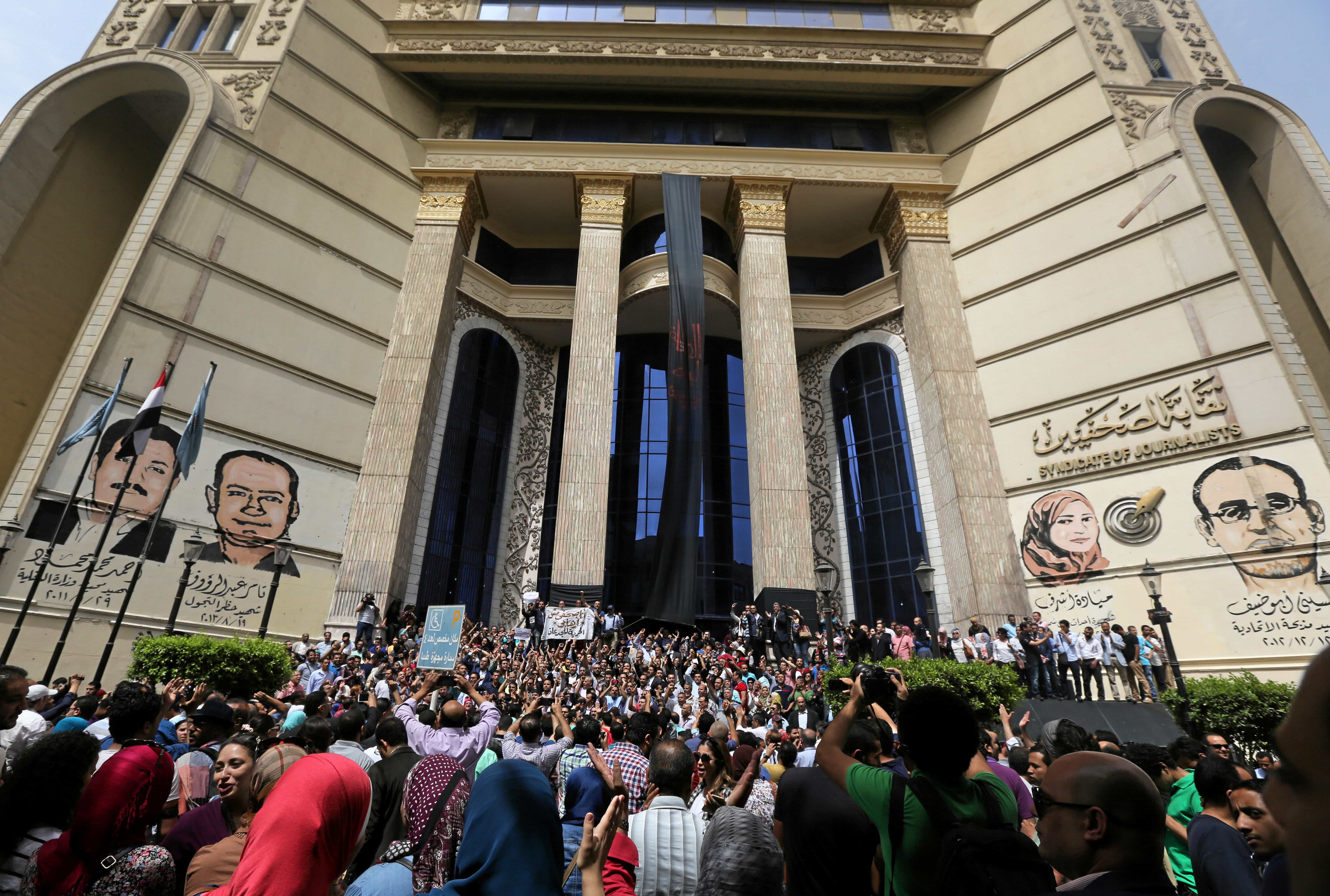The detention of Syndicate President Yahya Qallash, Vice President Khalid el Balshi and General Secretary Gamal Abdulrahim is the latest in an aggressive campaign by the Sisi government to control the media.
Abdel Fattah El-Sisi’s two-year reign has been marked by many unprecedented events in Egypt’s recent history. Its unprecedented intelligence cooperation with Israel, its unprecedented crackdown on NGOs, and its unprecedented numbers of death sentences and mass trials.
Since June 2014, Egyptians have been subjected to state repression at a scale rivalling and even exceeding the abuses experienced in the 1950s, a period widely understood to have been the most repressive in Egypt’s modern history.
On the evening of 29 May, Sisi’s government broke one more record. Leaders of Egypt’s press syndicate were detained and interrogated for more than 12 hours on charges of “spreading false news” and “harbouring fugitives”. They were released the next day pending trial.
“This incident is the first of its kind in the history of the Press Syndicate, since its founding in the late 1940s,” stated 19 local Egyptian civil society groups in a joint statement on 30 May, “making 2016, and more specifically the month of May, witness to the worst and the most dangerous violations in regards to press freedom and attacks on professional unions in Egypt.”
The detention of Syndicate President Yahya Qallash, Vice President Khalid el Balshi and General Secretary Gamal Abdulrahim did not occur in a vacuum. It is only the latest in an aggressive campaign by the Sisi government to control the media.
At the time of the Committee to Protect Journalists’ (CPJ) 2015 prison census, there were 23 journalists behind bars in Egypt, making it second only to China as the world’s worst jailer of journalists in 2015. And in August 2015, a highly repressive anti-terrorism law was introduced, effectively making the state “the only permissible source of news” on terrorist acts.
Unfortunately, many of Egypt’s high-profile media personalities had already abandoned the values of their profession, arguably becoming little more than government mouthpieces.
It is against this highly restrictive backdrop that Egypt’s press syndicate escalated its struggle against government actions to silence independent voices. On 4 May, thousands of Egyptian journalists responded to a call by syndicate leaders to protest a police raid in which two journalists who had reported on large-scale protests against the government’s decision to hand over two islands to Saudi Arabia had been arrested.
Responding to the detention and interrogation of the syndicate leaders, CPJ Middle East and North Africa Program Coordinator Sherif Mansour said, “Authorities are pursuing Yehia Qallash, Khaled al-Balshy, and Gamal Abdel Rahim for trying to defend the Egyptian media against a thin-skinned and brutal security apparatus.”
Reporters Without Borders (RSF) and the International Federation of Journalists (IFJ) have also weighed in on the syndicate leaders’ detention in statements condemning the government.
“The crisis surrounding the Journalists Syndicate shows that the regime is stopping at nothing in its campaign to intimidate the media,” said Alexandra El Khazen, the head of RSF’s Middle East desk.
“Falsely accusing press freedom defenders, charging them and sending them to prison can only happen in an oppressive police state, and Egypt is behaving like one,” said IFJ President, Jim Boumelha.
In the joint statement mentioned above, Egyptian civil society groups called on all those who believe in freedom of the press in Egypt to stand up for the syndicate, asserting that defying the government on this matter has become both imperative and unavoidable.



